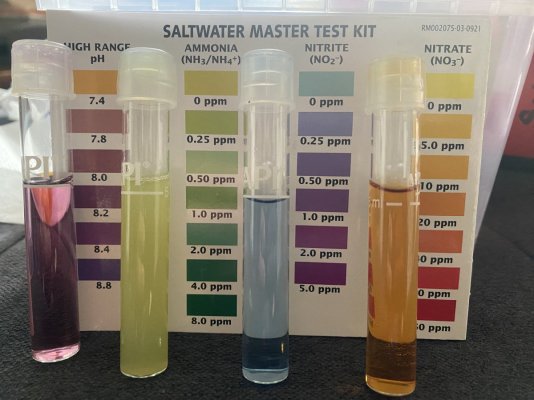- Joined
- Mar 5, 2018
- Messages
- 1,021
- Reaction score
- 803
Funny how things change : in the 70's & 80's instant ocean (aquarium systems) used to state something like - The salinity of the world's oceans is on average is- 1.023.....For reference, natural ocean water has an average salinity of about 35 ppt, corresponding to a specific gravity of about 1.0264
I collect natural sea water for my tank off the coast of delaware, ...In all the yrs of collection and testing - I usually see close to 1.023...depending on when it rains, tide etc...I used to see similar results when I lived on the south shore of long island..
So how we now say 1.0264 is confusing ....
Last edited:



















